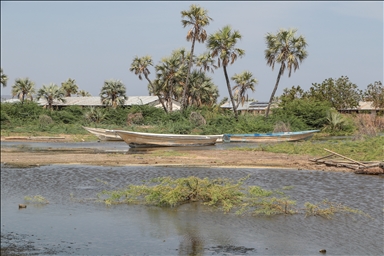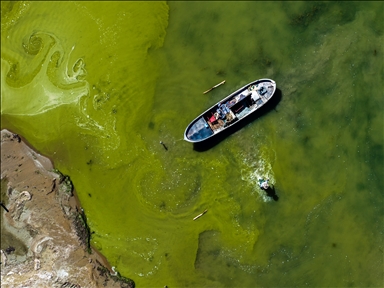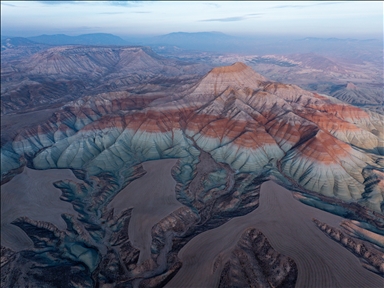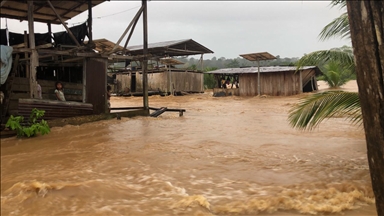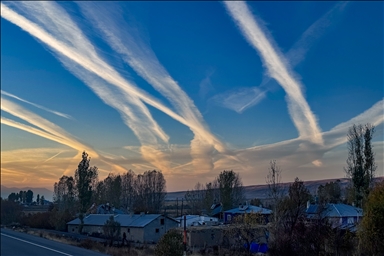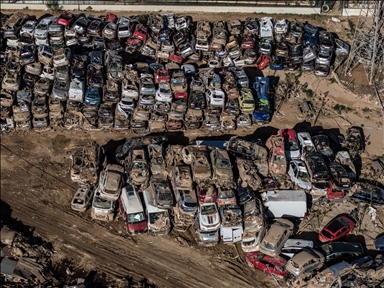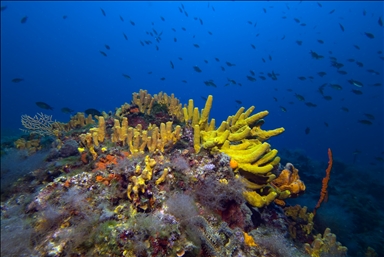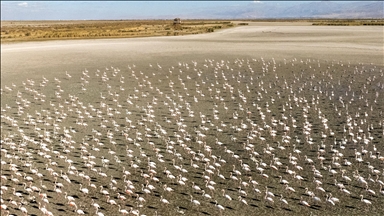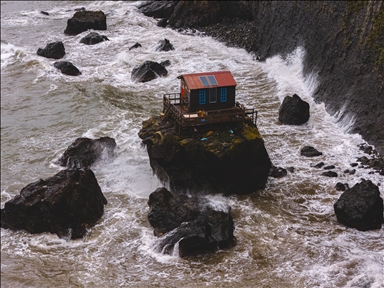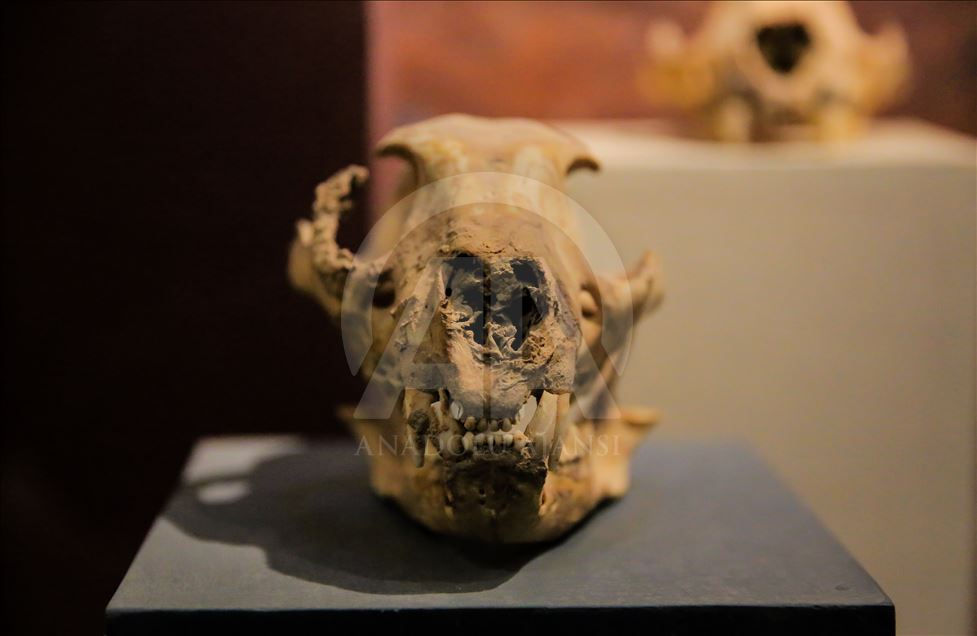
FAIYUM, EGYPT - MARCH 12: Fossils of whales, crocodiles and other animals are displayed at Fossil & Climate Change Museum at Wadi El Hitan (Valley of the Whales), which was designated a UNESCO World Heritage Site in 2005 for its hundreds of fossils of some of the earliest forms of whale after first fossil skeletons of whales were discovered in 1903 and has been turned an open-air museum, in Faiyum, Egypt on March 12, 2019. Wadi El Hitan with its extincted whale fossils like "Basilosaurus" and geological altered stone buildings, submits its visitors unique experience. ( Ahmed Al Sayed - Anadolu Agency )
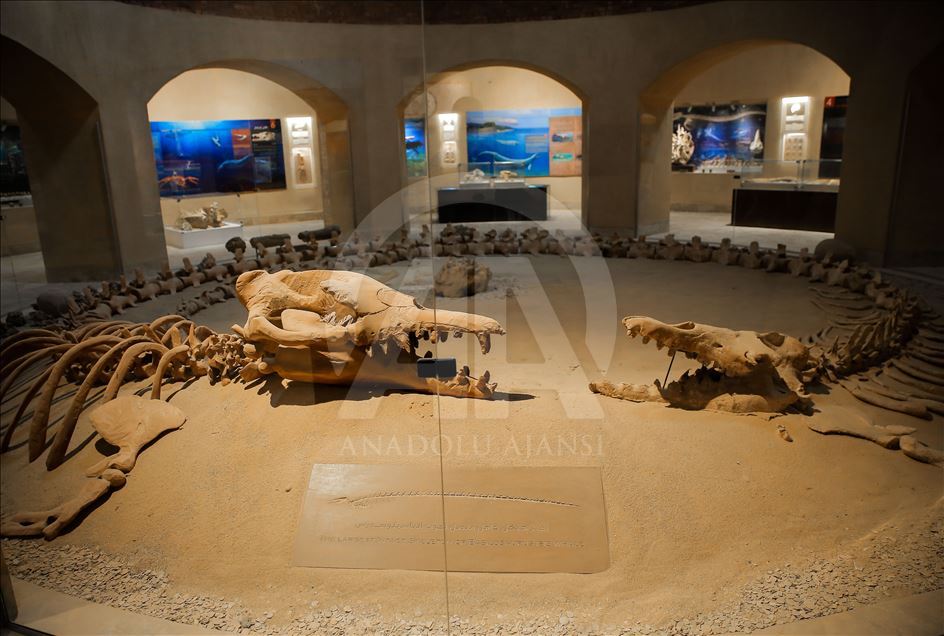
FAIYUM, EGYPT - MARCH 12: Fossils of whales, crocodiles and other animals are displayed at Fossil & Climate Change Museum at Wadi El Hitan (Valley of the Whales), which was designated a UNESCO World Heritage Site in 2005 for its hundreds of fossils of some of the earliest forms of whale after first fossil skeletons of whales were discovered in 1903 and has been turned an open-air museum, in Faiyum, Egypt on March 12, 2019. Wadi El Hitan with its extincted whale fossils like "Basilosaurus" and geological altered stone buildings, submits its visitors unique experience. ( Ahmed Al Sayed - Anadolu Agency )
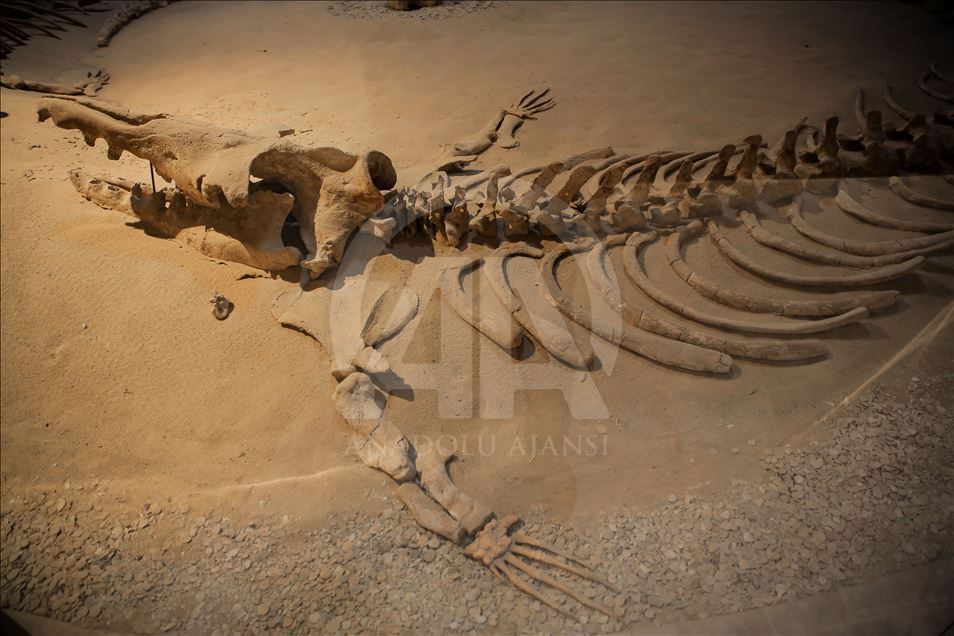
FAIYUM, EGYPT - MARCH 12: Fossils of whales, crocodiles and other animals are displayed at Fossil & Climate Change Museum at Wadi El Hitan (Valley of the Whales), which was designated a UNESCO World Heritage Site in 2005 for its hundreds of fossils of some of the earliest forms of whale after first fossil skeletons of whales were discovered in 1903 and has been turned an open-air museum, in Faiyum, Egypt on March 12, 2019. Wadi El Hitan with its extincted whale fossils like "Basilosaurus" and geological altered stone buildings, submits its visitors unique experience. ( Ahmed Al Sayed - Anadolu Agency )
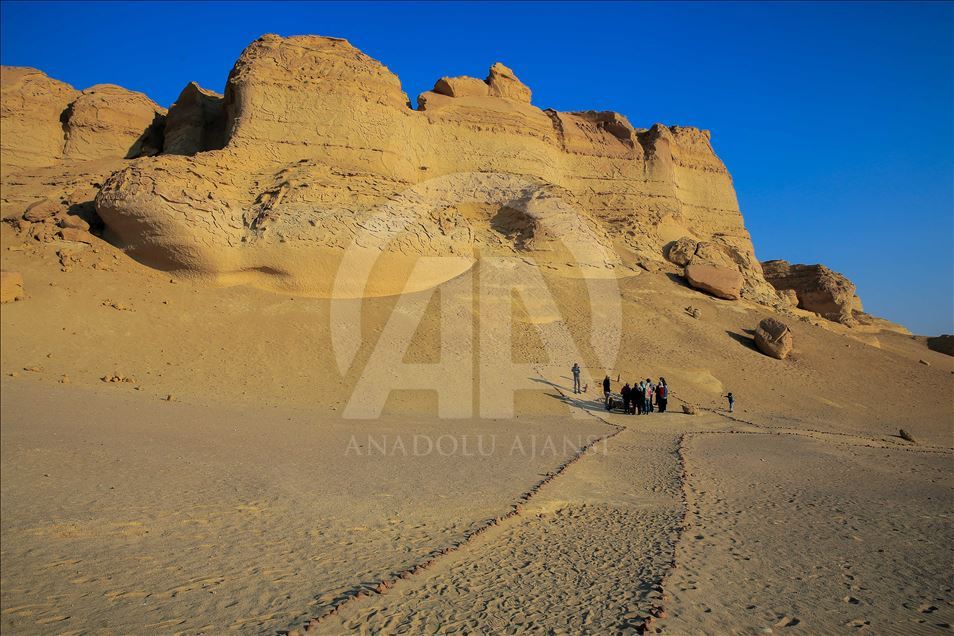
FAIYUM, EGYPT - MARCH 12: A view from Wadi El Hitan (Valley of the Whales), which was designated a UNESCO World Heritage Site in 2005 for its hundreds of fossils of some of the earliest forms of whale after first fossil skeletons of whales were discovered in 1903 and has been turned an open-air museum, in Faiyum, Egypt on March 12, 2019. Wadi El Hitan with its extincted whale fossils like "Basilosaurus" and geological altered stone buildings, submits its visitors unique experience. ( Ahmed Al Sayed - Anadolu Agency )
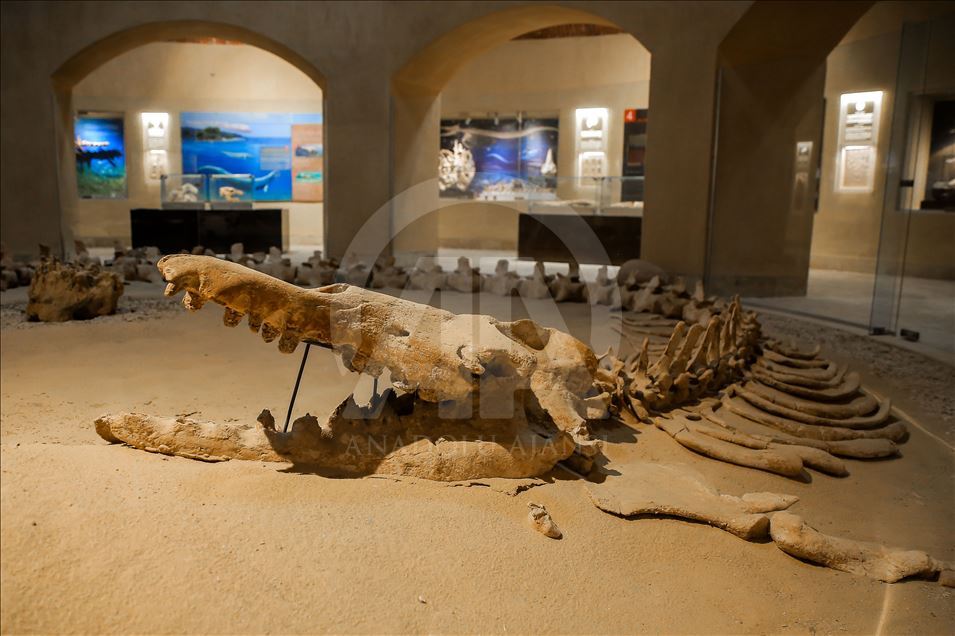
FAIYUM, EGYPT - MARCH 12: Fossils of whales, crocodiles and other animals are displayed at Fossil & Climate Change Museum at Wadi El Hitan (Valley of the Whales), which was designated a UNESCO World Heritage Site in 2005 for its hundreds of fossils of some of the earliest forms of whale after first fossil skeletons of whales were discovered in 1903 and has been turned an open-air museum, in Faiyum, Egypt on March 12, 2019. Wadi El Hitan with its extincted whale fossils like "Basilosaurus" and geological altered stone buildings, submits its visitors unique experience. ( Ahmed Al Sayed - Anadolu Agency )
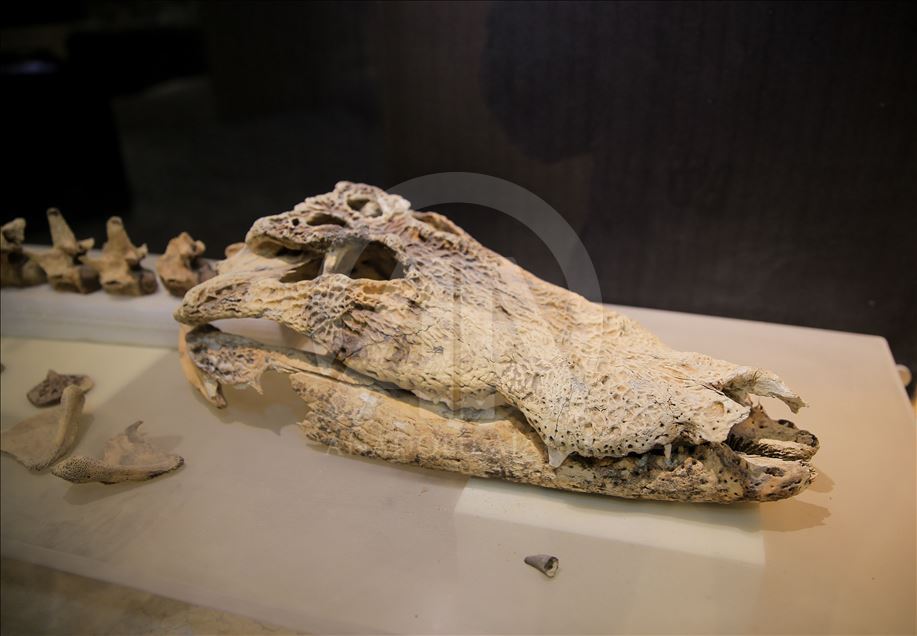
FAIYUM, EGYPT - MARCH 12: Fossils of whales, crocodiles and other animals are displayed at Fossil & Climate Change Museum at Wadi El Hitan (Valley of the Whales), which was designated a UNESCO World Heritage Site in 2005 for its hundreds of fossils of some of the earliest forms of whale after first fossil skeletons of whales were discovered in 1903 and has been turned an open-air museum, in Faiyum, Egypt on March 12, 2019. Wadi El Hitan with its extincted whale fossils like "Basilosaurus" and geological altered stone buildings, submits its visitors unique experience. ( Ahmed Al Sayed - Anadolu Agency )
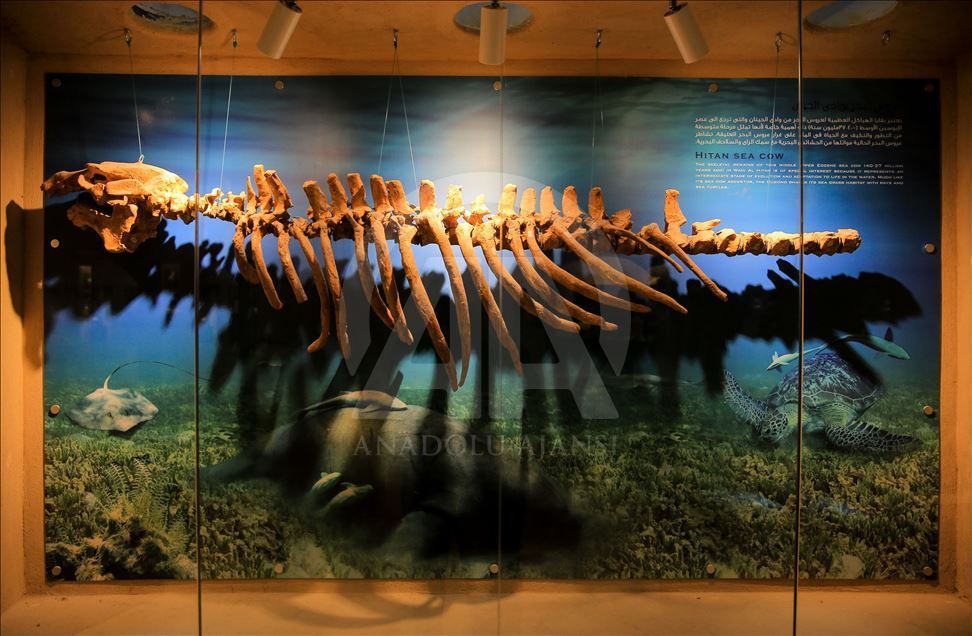
FAIYUM, EGYPT - MARCH 12: Fossils of whales, crocodiles and other animals are displayed at Fossil & Climate Change Museum at Wadi El Hitan (Valley of the Whales), which was designated a UNESCO World Heritage Site in 2005 for its hundreds of fossils of some of the earliest forms of whale after first fossil skeletons of whales were discovered in 1903 and has been turned an open-air museum, in Faiyum, Egypt on March 12, 2019. Wadi El Hitan with its extincted whale fossils like "Basilosaurus" and geological altered stone buildings, submits its visitors unique experience. ( Ahmed Al Sayed - Anadolu Agency )
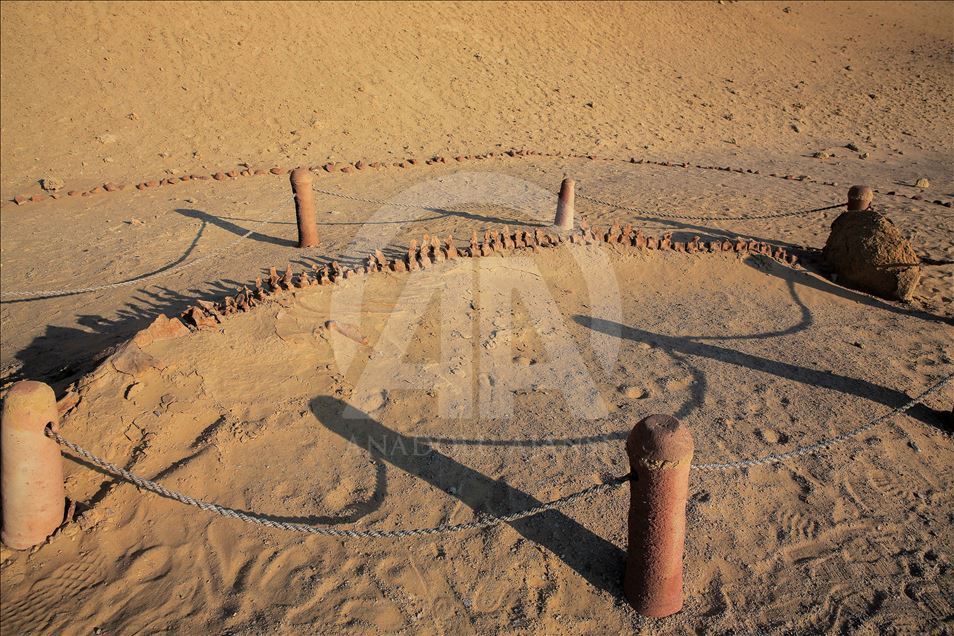
FAIYUM, EGYPT - MARCH 12: Fossil of a whale "Dorudon" is seen at Wadi El Hitan (Valley of the Whales), which was designated a UNESCO World Heritage Site in 2005 for its hundreds of fossils of some of the earliest forms of whale after first fossil skeletons of whales were discovered in 1903 and has been turned an open-air museum, in Faiyum, Egypt on March 12, 2019. Wadi El Hitan with its extincted whale fossils like "Basilosaurus" and geological altered stone buildings, submits its visitors unique experience. ( Ahmed Al Sayed - Anadolu Agency )
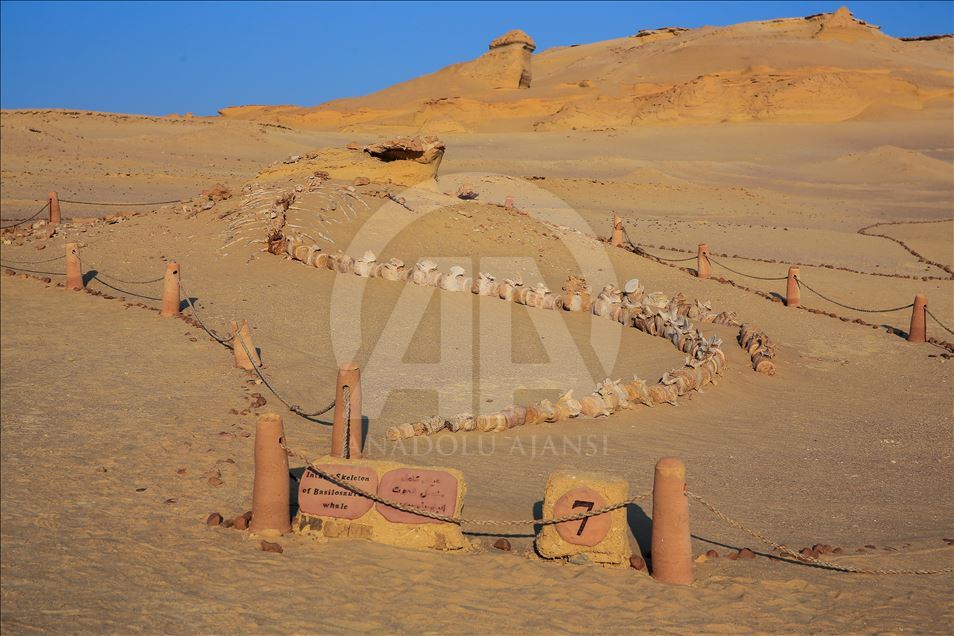
FAIYUM, EGYPT - MARCH 12: Fossil of a whale "Basilosaurus" is seen at Wadi El Hitan (Valley of the Whales), which was designated a UNESCO World Heritage Site in 2005 for its hundreds of fossils of some of the earliest forms of whale after first fossil skeletons of whales were discovered in 1903 and has been turned an open-air museum, in Faiyum, Egypt on March 12, 2019. Wadi El Hitan with its extincted whale fossils like "Basilosaurus" and geological altered stone buildings, submits its visitors unique experience. ( Ahmed Al Sayed - Anadolu Agency )
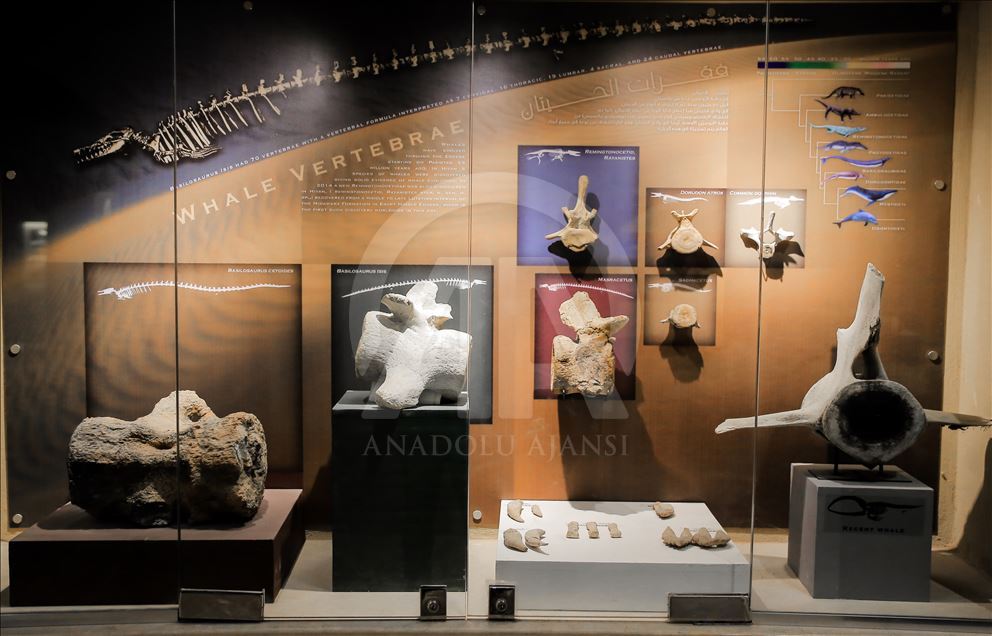
FAIYUM, EGYPT - MARCH 12: Fossils of whales, crocodiles and other animals are displayed at Fossil & Climate Change Museum at Wadi El Hitan (Valley of the Whales), which was designated a UNESCO World Heritage Site in 2005 for its hundreds of fossils of some of the earliest forms of whale after first fossil skeletons of whales were discovered in 1903 and has been turned an open-air museum, in Faiyum, Egypt on March 12, 2019. Wadi El Hitan with its extincted whale fossils like "Basilosaurus" and geological altered stone buildings, submits its visitors unique experience. ( Ahmed Al Sayed - Anadolu Agency )
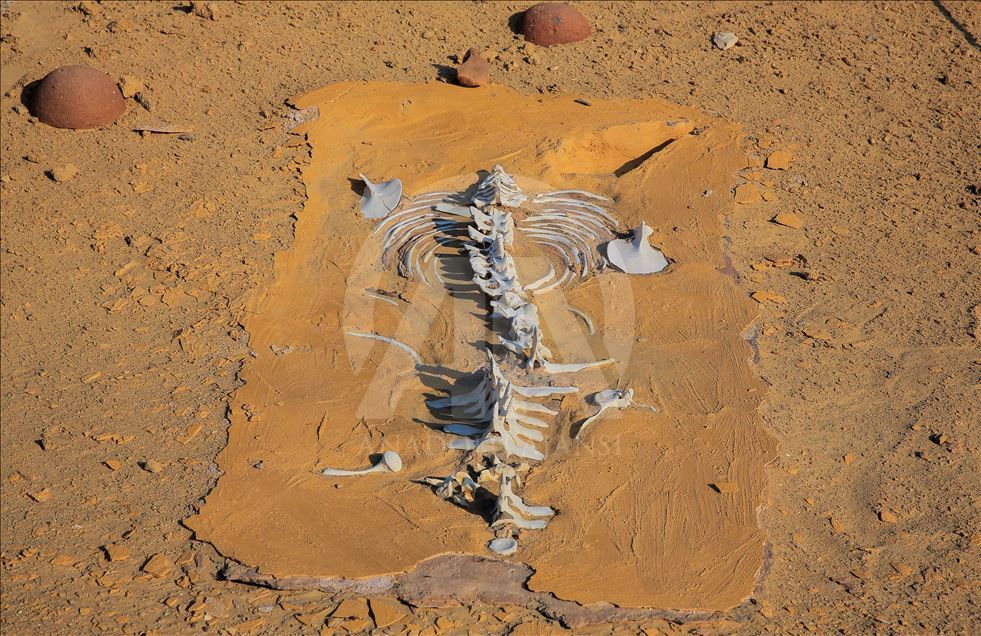
FAIYUM, EGYPT - MARCH 12: Fossil of a trichechus "Sirenia" is seen at Wadi El Hitan (Valley of the Whales), which was designated a UNESCO World Heritage Site in 2005 for its hundreds of fossils of some of the earliest forms of whale after first fossil skeletons of whales were discovered in 1903 and has been turned an open-air museum, in Faiyum, Egypt on March 12, 2019. Wadi El Hitan with its extincted whale fossils like "Basilosaurus" and geological altered stone buildings, submits its visitors unique experience. ( Ahmed Al Sayed - Anadolu Agency )
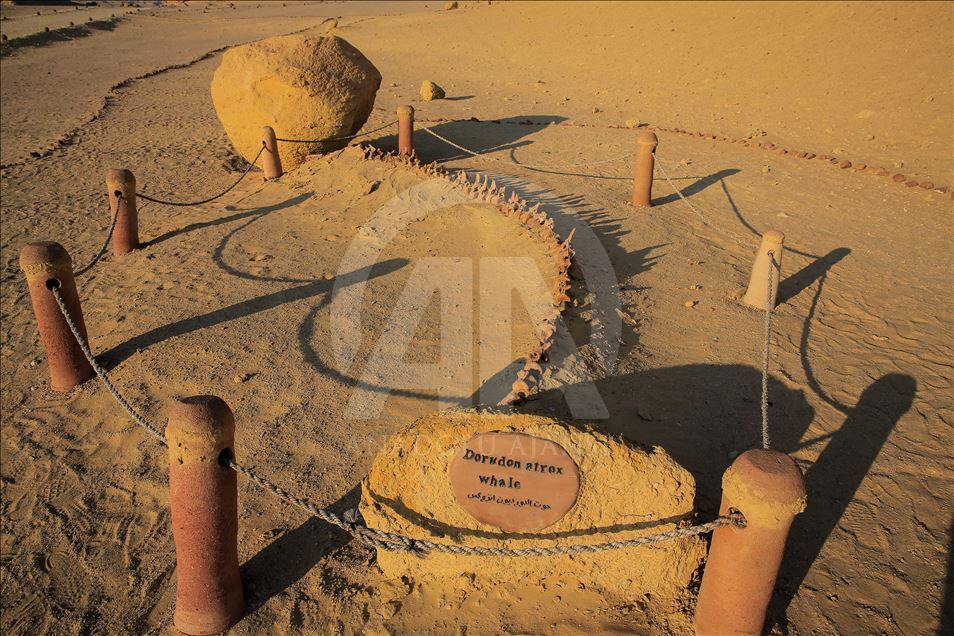
FAIYUM, EGYPT - MARCH 12: Fossil of a whale "Dorudon" is seen at Wadi El Hitan (Valley of the Whales), which was designated a UNESCO World Heritage Site in 2005 for its hundreds of fossils of some of the earliest forms of whale after first fossil skeletons of whales were discovered in 1903 and has been turned an open-air museum, in Faiyum, Egypt on March 12, 2019. Wadi El Hitan with its extincted whale fossils like "Basilosaurus" and geological altered stone buildings, submits its visitors unique experience. ( Ahmed Al Sayed - Anadolu Agency )
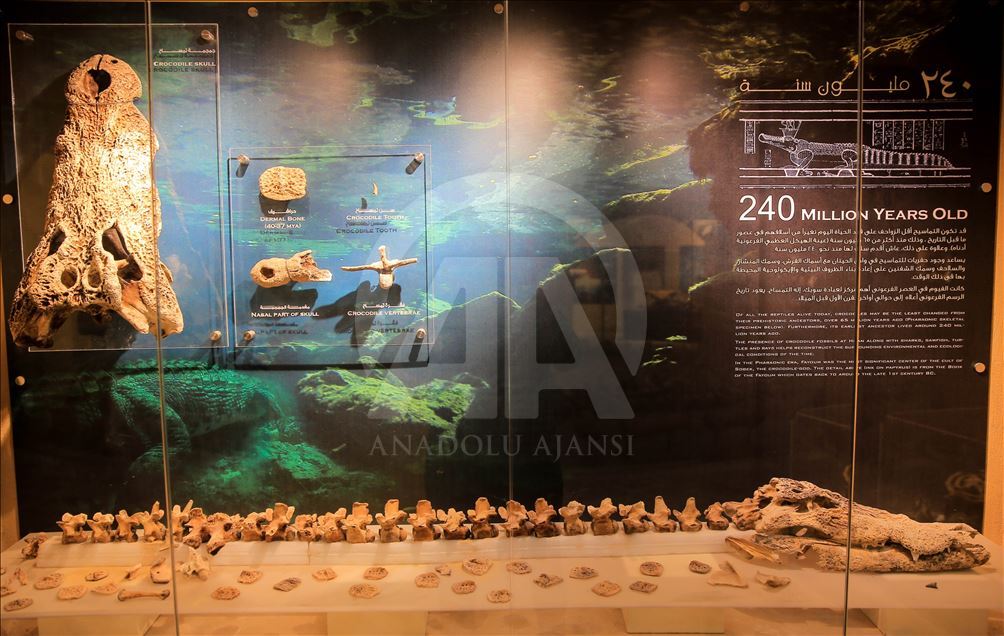
FAIYUM, EGYPT - MARCH 12: Fossils of whales, crocodiles and other animals are displayed at Fossil & Climate Change Museum at Wadi El Hitan (Valley of the Whales), which was designated a UNESCO World Heritage Site in 2005 for its hundreds of fossils of some of the earliest forms of whale after first fossil skeletons of whales were discovered in 1903 and has been turned an open-air museum, in Faiyum, Egypt on March 12, 2019. Wadi El Hitan with its extincted whale fossils like "Basilosaurus" and geological altered stone buildings, submits its visitors unique experience. ( Ahmed Al Sayed - Anadolu Agency )
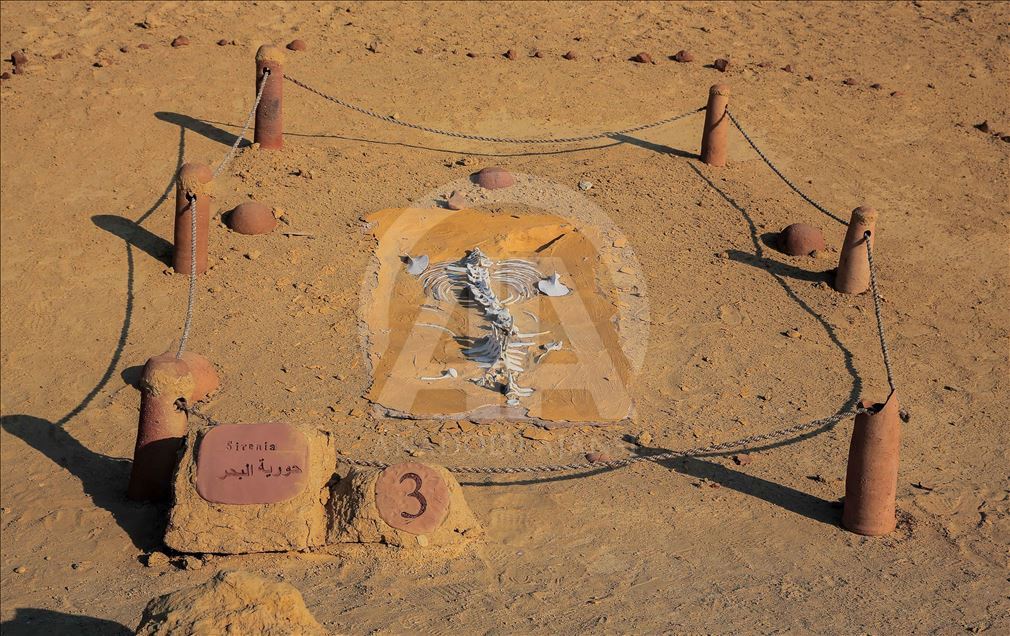
FAIYUM, EGYPT - MARCH 12: Fossil of a trichechus "Sirenia" is seen at Wadi El Hitan (Valley of the Whales), which was designated a UNESCO World Heritage Site in 2005 for its hundreds of fossils of some of the earliest forms of whale after first fossil skeletons of whales were discovered in 1903 and has been turned an open-air museum, in Faiyum, Egypt on March 12, 2019. Wadi El Hitan with its extincted whale fossils like "Basilosaurus" and geological altered stone buildings, submits its visitors unique experience. ( Ahmed Al Sayed - Anadolu Agency )
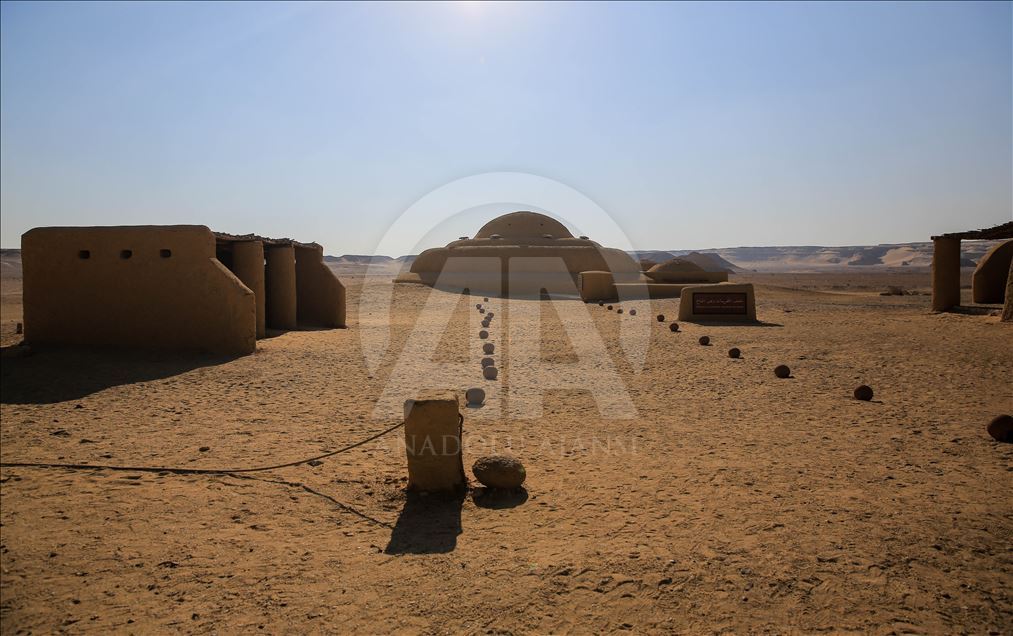
FAIYUM, EGYPT - MARCH 12: A view from Wadi El Hitan (Valley of the Whales), which was designated a UNESCO World Heritage Site in 2005 for its hundreds of fossils of some of the earliest forms of whale after first fossil skeletons of whales were discovered in 1903 and has been turned an open-air museum, in Faiyum, Egypt on March 12, 2019. Wadi El Hitan with its extincted whale fossils like "Basilosaurus" and geological altered stone buildings, submits its visitors unique experience. ( Ahmed Al Sayed - Anadolu Agency )
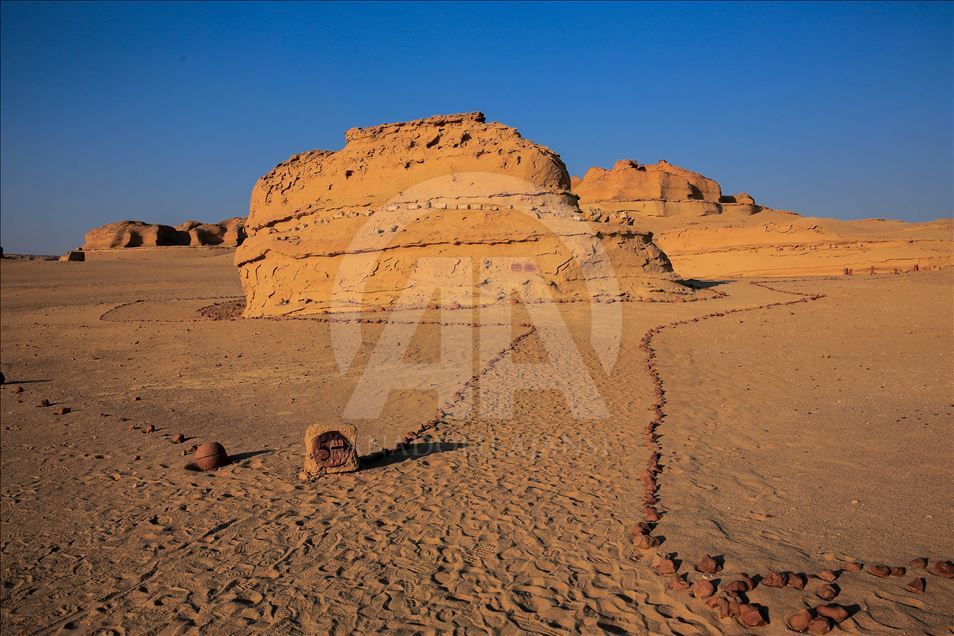
FAIYUM, EGYPT - MARCH 12: A view from Wadi El Hitan (Valley of the Whales), which was designated a UNESCO World Heritage Site in 2005 for its hundreds of fossils of some of the earliest forms of whale after first fossil skeletons of whales were discovered in 1903 and has been turned an open-air museum, in Faiyum, Egypt on March 12, 2019. Wadi El Hitan with its extincted whale fossils like "Basilosaurus" and geological altered stone buildings, submits its visitors unique experience. ( Ahmed Al Sayed - Anadolu Agency )




